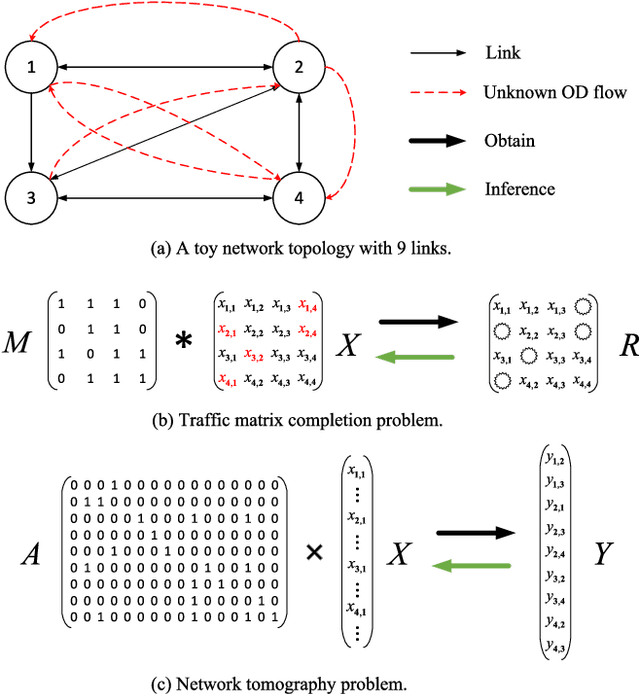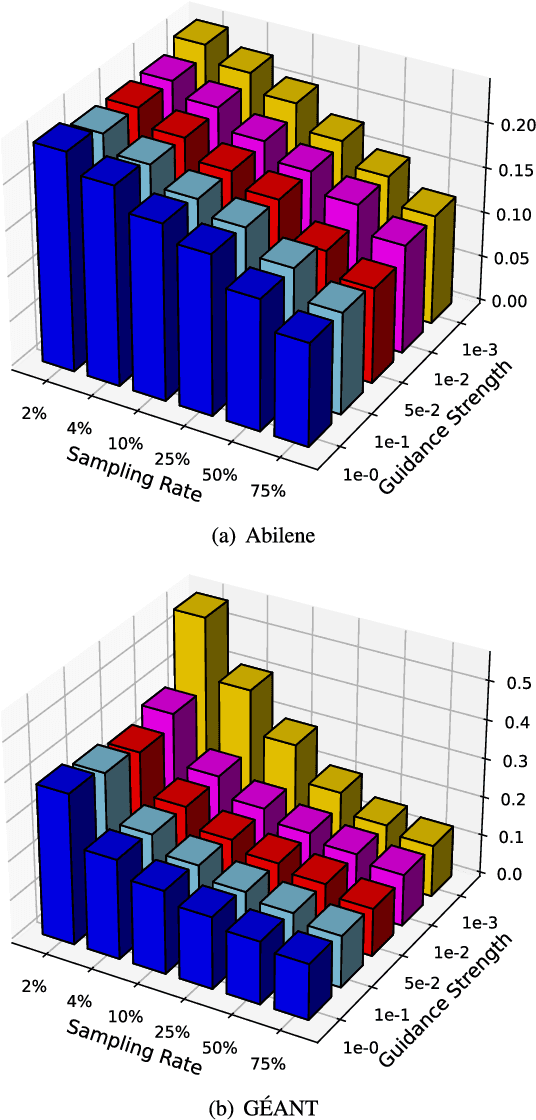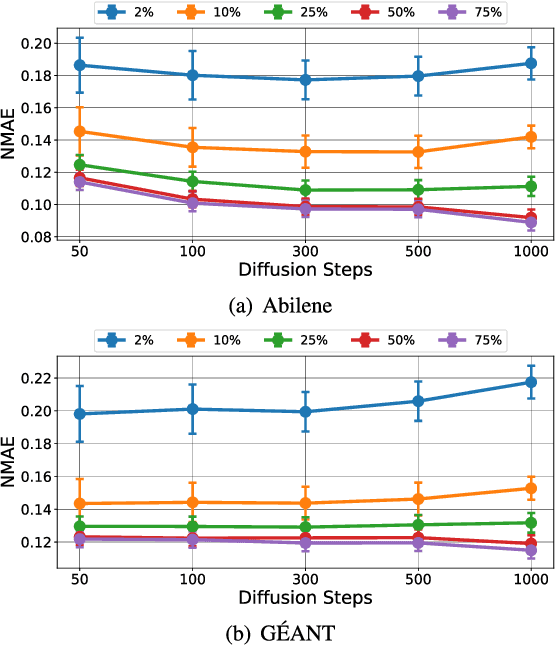Minyue Li
Diffusion Models Meet Network Management: Improving Traffic Matrix Analysis with Diffusion-based Approach
Nov 29, 2024



Abstract:Due to network operation and maintenance relying heavily on network traffic monitoring, traffic matrix analysis has been one of the most crucial issues for network management related tasks. However, it is challenging to reliably obtain the precise measurement in computer networks because of the high measurement cost, and the unavoidable transmission loss. Although some methods proposed in recent years allowed estimating network traffic from partial flow-level or link-level measurements, they often perform poorly for traffic matrix estimation nowadays. Despite strong assumptions like low-rank structure and the prior distribution, existing techniques are usually task-specific and tend to be significantly worse as modern network communication is extremely complicated and dynamic. To address the dilemma, this paper proposed a diffusion-based traffic matrix analysis framework named Diffusion-TM, which leverages problem-agnostic diffusion to notably elevate the estimation performance in both traffic distribution and accuracy. The novel framework not only takes advantage of the powerful generative ability of diffusion models to produce realistic network traffic, but also leverages the denoising process to unbiasedly estimate all end-to-end traffic in a plug-and-play manner under theoretical guarantee. Moreover, taking into account that compiling an intact traffic dataset is usually infeasible, we also propose a two-stage training scheme to make our framework be insensitive to missing values in the dataset. With extensive experiments with real-world datasets, we illustrate the effectiveness of Diffusion-TM on several tasks. Moreover, the results also demonstrate that our method can obtain promising results even with $5\%$ known values left in the datasets.
An Evidential Real-Time Multi-Mode Fault Diagnosis Approach Based on Broad Learning System
Apr 29, 2023Abstract:Fault diagnosis is a crucial area of research in the industry due to diverse operating conditions that exhibit non-Gaussian, multi-mode, and center-drift characteristics. Currently, data-driven approaches are the main focus in the field, but they pose challenges for continuous fault classification and parameter updates of fault classifiers, particularly in multiple operating modes and real-time settings. Therefore, a pressing issue is to achieve real-time multi-mode fault diagnosis for industrial systems. To address this problem, this paper proposes a novel approach that utilizes an evidence reasoning (ER) algorithm to fuse information and merge outputs from different base classifiers. These base classifiers are developed using a broad learning system (BLS) to improve good fault diagnosis performance. Moreover, in this approach, the pseudo-label learning method is employed to update model parameters in real-time. To demonstrate the effectiveness of the proposed approach, we perform experiments using the multi-mode Tennessee Eastman process dataset.
 Add to Chrome
Add to Chrome Add to Firefox
Add to Firefox Add to Edge
Add to Edge